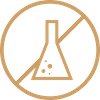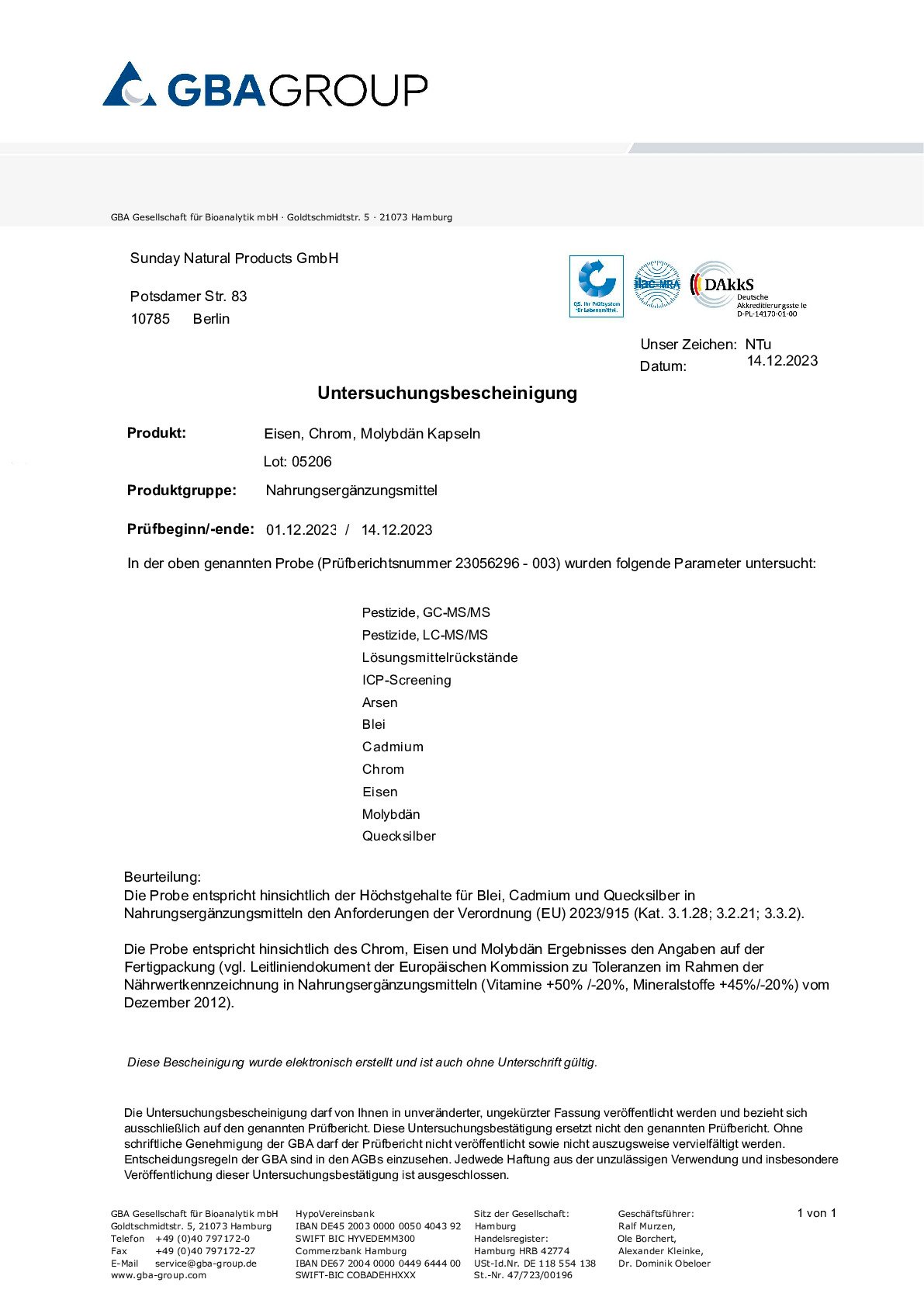Iron, Chromium, Molybdenum
Iron, chromium, and molybdenum are essential trace elements that play roles in numerous metabolic processes within the body.
Iron is a major component of haemoglobin in blood formation and thus important for oxygen transportation and cell respiration. Iron plays a role in cognitive functions and is also involved in the normal function of the immune system and cell division.
Chromium makes an important contribution to the regulation of blood sugar levels and supports normal metabolism of fats, carbohydrates and proteins.
Molybdenum plays an important role in metabolism and especially in maintaining the metabolism of sulphur-containing amino acids such as cysteine and methionine.
Iron
Iron is an essential trace element that plays a critical role in the transport of oxygen in the blood as well as in cellular respiration, the maintenance of the immune system and normal cognitive performance. Iron is found in greater amounts in legumes, meat and cereal products, although often in less bioavailable forms in the latter.
According to the European Food Safety Authority (EFSA):
Iron contributes to:
- Normal cognitive function
- Normal energy metabolism
- Normal formation of red blood cells and hemoglobin
- Normal oxygen transport in the body
- Normal function of the immune system
- The reduction of tiredness and fatigue
- Iron also plays a role in cell division
According to the European Food Safety Authority (EFSA):
Chromium contributes to:
- the maintainance of normal blood sugar levels
- the maintainance of body weight
Molybdenum
The human body can store about 8-10mg of molybdenum. About 60% is contained in the bones and 40% in the kidneys, lungs, liver and skin.
According to the European Food Safety Authority (EFSA):
Molybdenum contributes to:
- the maintenance of normal amino acid metabolism






























